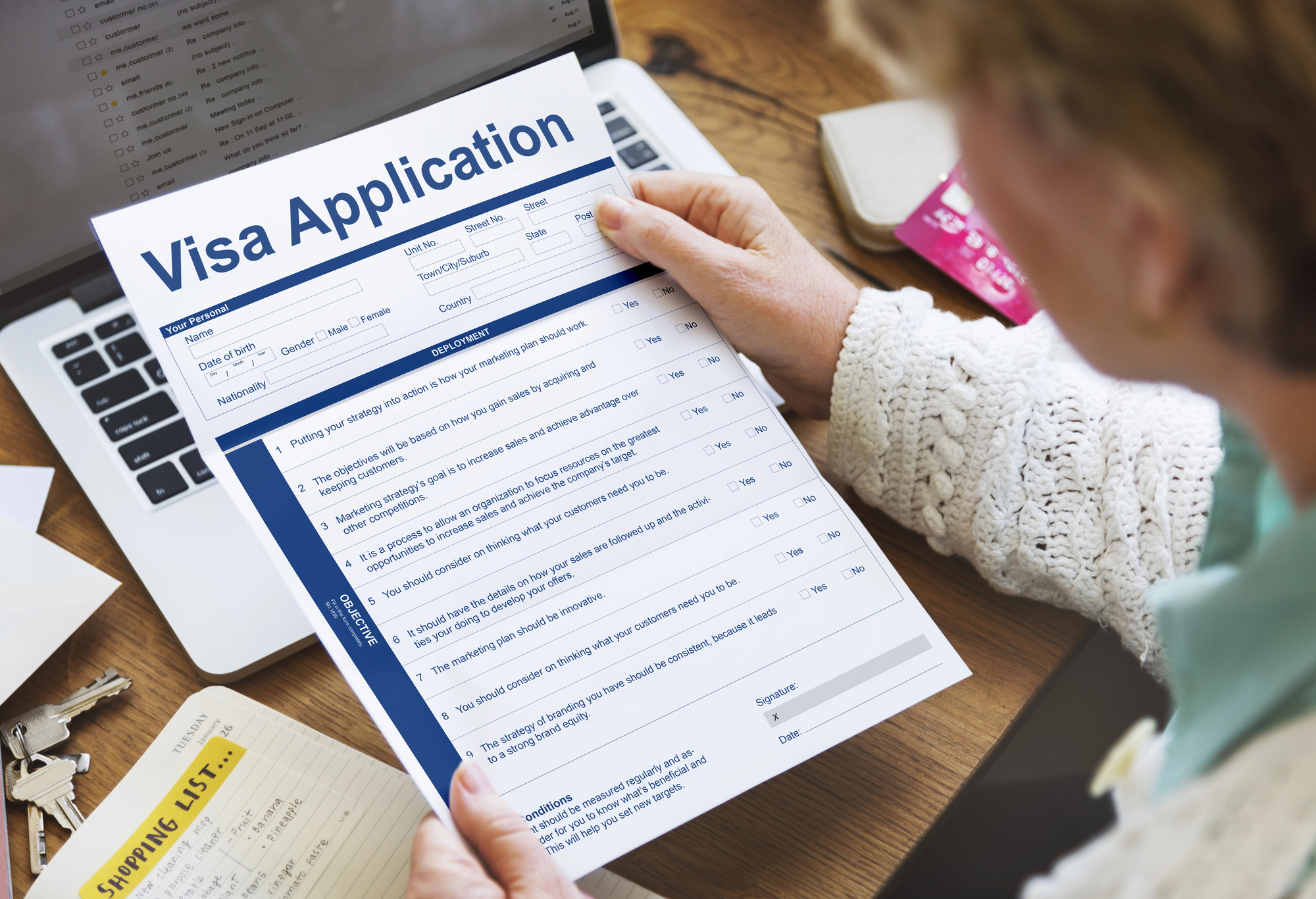Getting told you are inadmissible to the United States can feel overwhelming. Whether it’s because of unlawful presence, a medical issue, or past criminal grounds, the result is often the same: a denied visa and deep uncertainty for you and your family members.
But being denied admission doesn’t always mean the door is shut forever. U.S. immigration law includes specific waivers for those who meet strict legal and personal standards. These waivers are not easy to win, and the process is never automatic. Still, with the right help, many visa applicants succeed in reopening the path to rejoin their loved ones.
At The Chidolue Law Firm, we understand what this moment means. We’ve helped people navigate the complex grounds of inadmissibility and present powerful cases to Citizenship and Immigration Services. If your future in the U.S. depends on a waiver, we’re here to guide you through every step with clarity, compassion, and strategy.
What Does ‘Inadmissible’ Mean—and Why It Matters
U.S. immigration law sets strict rules about who may enter or stay in the country. If the government finds that someone falls under specific grounds of inadmissibility, that person becomes ineligible to receive an immigrant visa, adjust status, or even enter the U.S. in many cases.
There are several reasons someone may be considered inadmissible. These include a past controlled substance violation, a communicable disease, a record of immigration fraud, or membership in a totalitarian party. Others may face issues because of a crime involving moral turpitude or a history of unlawful presence in the United States.
The consequences of this label are serious. It may affect not only your own future but also that of your immediate relatives. You may be barred from reuniting with your spouse or children, or from receiving a long-awaited immigration benefit.
Still, not all bars are permanent. In many cases, U.S. law allows certain people to apply for a waiver — a legal request to forgive the inadmissibility and move forward with their immigration plans.
Common Grounds for Inadmissibility—and Who Qualifies for a Waiver
Unlawful Presence and Reentry Bars
One of the most common issues is unlawful presence. If you remained in the U.S. without authorization and then departed, you may face a three- or ten-year bar from returning. These bars apply even if you now qualify for an immigrant visa through marriage or other family-based routes.
Criminal Records and Moral Grounds
A past crime involving moral turpitude or other criminal history can result in denial. This includes offenses related to serious criminal activity or patterns that raise questions about character and safety. The waiver process for these grounds is highly technical and depends on the details of the case.
Health-Related Inadmissibility
Applicants with a mental disorder linked to associated harmful behavior, or a condition considered of public health significance, may face medical bars. These cases often require a full review of medical records and proof of treatment or rehabilitation.
Qualifying Relatives and Hardship Requirement
Most waiver options depend on showing that a qualifying relative—a U.S. citizen or lawful permanent resident spouse or parent—would suffer extreme hardship if the applicant is denied admission. This hardship must go beyond the usual emotional pain of separation and be supported with real evidence.
Bars That Cannot Be Waived
Some issues, such as involvement in particularly severe violations or past renounced citizenship for tax purposes, are not waivable. Only a legal review can determine if your situation qualifies under current immigration law.
Two Main Waiver Paths: Form I-601 and Form I-601A
There are two main waiver options available for those facing grounds of inadmissibility: Form I-601 and Form I-601A. Each form serves a different type of case, depending on where the applicant is located and what ground applies.
Form I-601 – For Applicants Outside the U.S. or in Adjustment Process
If you have already been found inadmissible—either during your immigrant visa interview abroad or while applying for adjustment of status in the U.S.—you may need to file Form I-601. This waiver applies to a wide range of grounds, including criminal grounds, health related grounds, and past immigration fraud.
You must show that a qualifying relative would face extreme hardship without you. This form is often used after a consular officer has denied a visa based on inadmissibility.
Form I-601A – Provisional Waiver for Unlawful Presence
The provisional unlawful presence waiver allows certain people inside the U.S. to apply for a waiver before they leave for a consular interview. This form is used only for unlawful presence bars, not for criminal or other types of inadmissibility.
Form I-601A is available to those who are physically present in the U.S. and are seeking an immigrant visa through a family relationship. They must also prove that their U.S. citizen or lawful permanent resident spouse or parent would suffer extreme hardship if they are not allowed to return.
Both forms involve legal strategy, deadlines, and supporting documents. A mistake at this stage can delay your case or lead to denial.
Eligibility Requirements: Do You Qualify for a Waiver?
Before you apply for a waiver, you must meet the eligibility rules under U.S. immigration law. The process is not open to everyone. Most waiver requests depend on having a qualifying relative, such as a spouse or parent who is a U.S. citizen or lawful permanent resident. If you cannot show this connection, your request may not be accepted.
The law also requires that your relative would suffer extreme hardship if the government denies your waiver. This goes beyond normal stress. It may involve a medical crisis, a lack of support in a foreign country, or serious financial hardship if the family is separated. You must provide real proof that this hardship exists.
Some people do not qualify at all. If the inadmissibility involves national security issues, a serious crime involving moral turpitude, or past particularly severe violations, a waiver may not be available. Each case depends on the facts.
USCIS also looks at your background and character. If you have a history of criminal activity, prior immigration violations, or have made false claims to gain a visa, your chances may go down. But if you have strong supporting evidence and no bar blocks you outright, legal help can make a real difference in how your case moves forward.
The Legal Waiver Process: What Happens After You Apply
Once you submit Form I-601 or Form I-601A, the wait begins. The review process falls under Citizenship and Immigration Services, where officers look at your documents, evidence, and background. They decide if your waiver should be approved based on the law and the hardship claim you present.
If you filed Form I-601, your case will likely be handled after your immigrant visa interview or once your inadmissibility has been confirmed. In contrast, if you use Form I-601A, you must already be inside the U.S. and meet specific rules tied to the provisional unlawful presence waiver. This form does not cover criminal grounds or any other bar beyond unlawful presence.
Processing times can vary, but most cases take several months. During this period, you may receive a receipt notice, followed by a request for additional documents. You may need to respond quickly and submit more supporting evidence if asked. Missing a deadline can lead to denial.
If your waiver is approved, you will move forward with your case—either to your immigrant visa interview abroad or with the next step in your status process. If it’s denied, you may have the right to file a motion or appeal, depending on the reason.
A clear legal strategy from the start can help avoid delays and errors. That’s why working with a qualified attorney, not a consultant, is so important in complex waiver cases.
How Long Does It Take—and What Are Your Odds?
The timeline for a waiver depends on the type of form you submit and your specific situation. For Form I-601, it typically takes 6 to 12 months to receive a decision. If you filed a Form I-601A for a provisional unlawful presence waiver, you may wait about 10 to 14 months before hearing back.
USCIS processing times can shift based on case volume, the consular officer’s review, and whether USCIS requests more documents. If your supporting evidence is strong and complete from the beginning, your odds of approval increase.
Success rates also depend on the ground of inadmissibility. Waivers for unlawful presence tend to have higher approval rates than those involving serious criminal activity or health related grounds. However, each case is unique. Even two applicants with the same issue may receive different outcomes based on how well the case is presented.
There is no guarantee. But when a waiver is prepared by a legal team with deep knowledge of immigration law and real experience in immigration benefit cases, your chances go up.
Why Legal Support Makes a Difference
Filing a waiver without legal help puts your future at risk. U.S. immigration law is complex, and each waiver application must follow strict rules. One small mistake can lead to denial, with no second chance.
A skilled immigration attorney knows how to prepare a strong case. They organize facts, check your criminal history, and include the right supporting evidence. If your waiver involves public health significance or hardship, they know how to address those issues clearly.
Legal help also protects you from fraud. Only licensed attorneys and accredited representatives can lawfully assist with waivers. Others may promise results but often fail to follow the law.
At The Chidolue Law Firm, we don’t just file papers—we build a legal strategy that protects your path to lawful permanent residence.
Working with The Chidolue Law Firm
Choosing the right legal team makes all the difference. At The Chidolue Law Firm, we help clients across the U.S. and abroad who face grounds of inadmissibility. From preparing Form I-601A for those unlawfully present to advising VAWA self-petitioners, our goal is to help families stay together.
Each case is reviewed by a licensed attorney in good standing—never handed off to unqualified assistants or immigration consultants. We assist with complex matters such as controlled substance violations, communicable diseases, or past immigration fraud. We understand the urgency behind every visa applicant’s situation.
Our team stays up to date with USCIS policies and changes to the Immigration and Nationality Act. We work with clients to provide supporting evidence, gather medical records, and outline the best way forward—whether through a consular interview or waiver resubmission.
If you or a loved one has been denied admission, you don’t have to face it alone. Our attorneys are ready to represent clients and ensure your waiver request meets the highest standards of immigration law.
Don’t Let One Mistake Block Your Future
Facing a grounds of inadmissibility decision can feel overwhelming, but there is hope. With the right support, a waiver can reopen doors that once seemed closed. You don’t need to figure it out alone, and you shouldn’t have to take that risk.
At The Chidolue Law Firm, we understand what’s at stake. Every case we take reflects a real family, a real hardship, and a real future. If you’re considering a waiver or have already been denied admission, we are here to help you understand your options and protect your path forward.
📞 Call The Chidolue Law Firm today at:
➡ 407-995-6567
➡ 678-325-1037
💬 For WhatsApp inquiries, contact us at:
➡ 404-333-8751
Let us help you turn this challenge into your next chapter.



